Why Developmental Stages Matter for Teaching
If you’ve ever felt frustrated that your students seem to think in black and white, or that they seem reluctant to do their own reasoning and expect you to provide the “right” answers to every question, you might be reassured to know that what you’re noticing is not intellectual languor but a developmental stage.
William G. Perry’s influential theory of student development (1970, 1998) traced the ethical and intellectual journey that students undergo as their thinking matures. Although progress may not be strictly linear—we can develop and then regress, especially under stress or in novel circumstances, and we may make progress in a particular domain but remain more dependent learners in another—the stages are surprisingly predictable.
Most students embark on their college careers at the stage Perry labeled dualism. At this stage they see learning as the accumulation of right answers and look to authorities or experts (in this case, you!) to be the source of these answers. Their moral schemata may tend to be binary (good/bad, right/wrong). Students at this stage may be suspicious of collaborative learning, since they view the authority/expert as the only legitimate source of knowledge.
At the next stage, multiplicity, students grow able to accept many truths (or perhaps decide there is none), but cannot yet prioritize amongst them. Students at this stage may feel that all “opinions” are equally valid, and have difficulty distinguishing between an opinion and a reasoned position. Many students leave college still in this stage.
The following stage, to which we aspire to bring students, is relativism, where they gain more facility at contextualizing problems and see that appropriate evidence is necessary to help us weigh a range of interpretations, arguments, or narratives, in order to select the soundest. This work remains challenging for them, but students at this stage may become more comfortable with ambiguity and accustomed to dealing with messy problems, for which solutions cannot be clear-cut. They often still need the scaffolding of a course or formal learning experience to fully exercise their newly developing skills.
Few undergraduates reach the fourth stage, commitment within relativism. Learners at this stage are able to appreciate uncertainty and tend to have more practiced metacognitive skills. They are likelier to enjoy discovering, evaluating, probing, contextualizing. They may have assessed and committed to moral as well as epistemological frameworks. You may see your graduate students enter this stage as they develop disciplinary expertise.
One important purpose of a college education is to attain these later stages of development; we want our students to have criteria by which they can evaluate competing interpretations of reality, and practice in using such tools, in the university and beyond. Since they are growing as thinkers, and as moral agents, merely collecting information (as they wished to do in the first stage) will not help them to develop. We must provide them with opportunities to hone their reasoning on complex problems and to practice making difficult decisions. We should also be aware that there are affective hurdles to achieving each new stage: especially for students moving through the dualistic stage, the loss of perceived clarity and stability can be a source of frustration or even grief.
The journey is not an easy one, for students or for the faculty who guide them, but it’s very gratifying to observe students’ progress. We’d love to help you design your courses and your assignments to nudge students along in their development, so please contact us at pro-teaching@fsu.edu for a consultation if you’re interested in thinking more explicitly about how you craft learning experiences that help students stretch. Thank you for all you do to help your students grow into our future neighbors and leaders.
SPRING FACULTY & TA READING GROUPS
The Center for the Advancement of Teaching is offering the following three faculty and two graduate student (TA) reading groups this semester. Each group will meet once a week for three weeks to discuss the books in sections. We hope you can join us! Please register here.
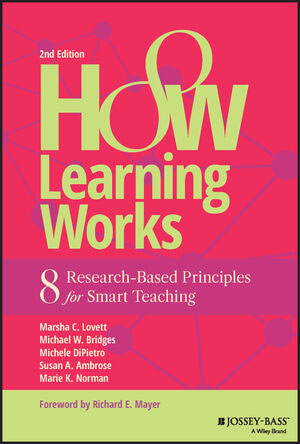
Thursdays: 2/1, 2/8, 2/15
2:00–3:30 p.m. in 432 DIF
Print copy, delivered through interoffice mail
The newly updated edition of this important book translates decades of scientific literature into practical advice, introducing eight general principles of how people learn. The authors draw on cognitive, developmental, and social psychology, as well as educational research, anthropology, etc. The discussion spans issues from memory to motivation, integrating theory with real classroom examples. Participants will develop strategies for strengthening their own teaching through the application of these principles.
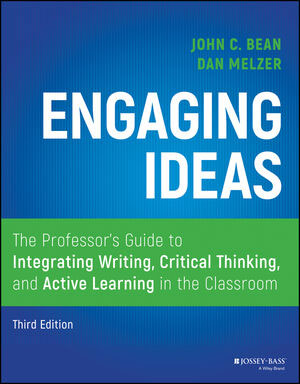
Engaging Ideas: The Professor’s Guide to Integrating Writing, Critical Thinking, and Active Learning in the Classroom
Fridays: 2/9, 2/16, 2/23
2:00–3:30 p.m. in 432 DIF
Print copy, delivered through interoffice mail
The newly revised third edition of John Bean’s best-selling classic will be the foundation of this reading group, in which we will discuss using writing as a mode of teaching and learning in any course. From formal writing projects to informal classroom activities, we will explore the ways writing can be used to help students improve as critical thinkers and effective communicators. Then, we will make plans to apply strategies Bean and Melzer describe in this new edition to enhancing writing instruction and active learning in our own courses.
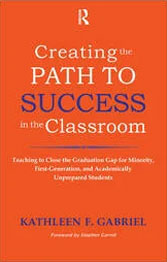
Fridays: 2/23, 3/1, 3/8
11:00–12:30 p.m. in Dirac Conference Room
Print copy, delivered through interoffice mail
Over the past few decades, extensive research has shown that we can enhance student learning by adjusting our teaching practices and the ways we structure our courses. But where do we start? Kathleen Gabriel’s book provides practical strategies for building our courses to ensure that more students learn more and more deeply. Gabriel offers concrete steps we can take to enhance student motivation, structure class time effectively, prompt critical thinking, design effective assignments, and create classroom climates that promote learning.
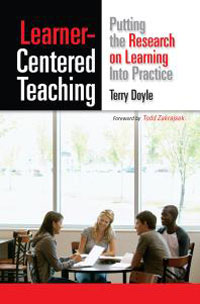
Fridays: 2/2, 2/9, 2/16
11:00–12:30 p.m. in Dirac Conference Room
E-book, available for free through FSU’s libraries
Note: This group is for graduate students only.
Recent decades have brought a wealth of research on learning and cognition. These developments are gradually making their way into work on best practices for the college classroom. Doyle’s Learner-Centered Teaching is a practical, comprehensive guide to strategies for making effective use of the research. When we adjust our classroom focus from teaching to learning, we make our own work more gratifying, and we can enhance our students’ learning experience as well as their mastery of material. In this group, graduate teaching assistants will discuss Doyle’s text and specific strategies and activities for enriching our own classrooms.
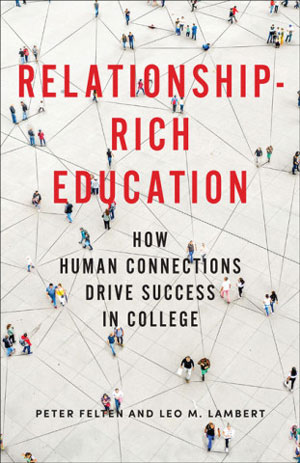
Thursdays: 2/1, 2/15, 2/22
11:00–12:30 p.m. in 432 DIF
E-book, available for free through FSU’s libraries
Note: This group is for graduate students only.
Peter Felten and Leo M. Lambert argue that education is not merely a series of transactions, but instead an opportunity for students to form a web of meaningful relationships that are vital not only to their academic success but also to their sense of belonging and self-discovery. They explain that social connection and belonging are not just pleasant extras in college, but prerequisites for learning, especially for powerful learning. The book provides examples and strategies for how institutions can foster richer learning environments, and the reading group will discuss ways we can shape our teaching to cultivate community and connection in our classrooms.



